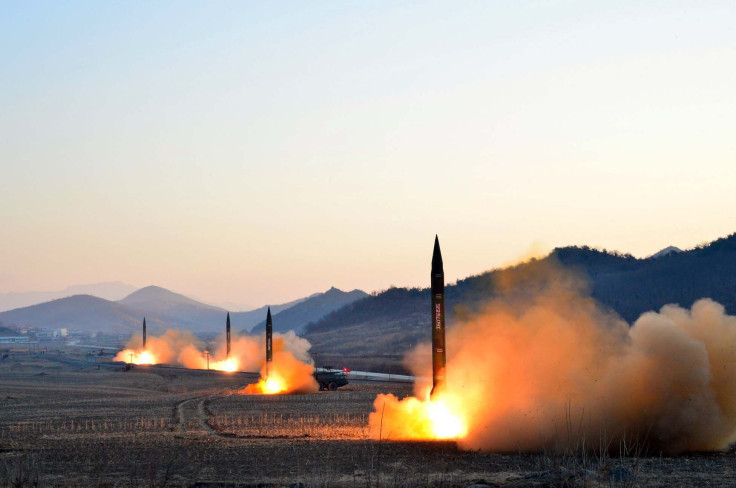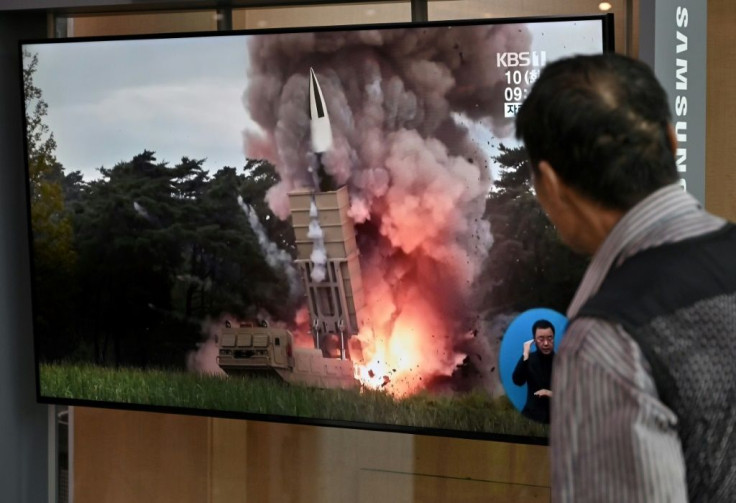World War 3? North Korea Missile Launch Hits Japan

Japan has lodged a strong diplomatic protest with North Korea after one of two ballistic missiles the latter launched towards the Sea of Japan exploded inside its exclusive economic zone (EEZ) Wednesday morning local time.
This is the second time since Aug. 24 North Korean ballistic missiles have struck the Sea of Japan, but the first time missiles have impacted inside Japan's EEZ. The North Koreans today launched the short-range ballistic missiles (SRBMs) from Wonsan in Gangwon Province, according to South Korea's Joint Chiefs of Staff.
The Japan Self-Defense Force (JSDF) is on alert for possible additional launches.
North Korea has conducted eight missile tests involving one or more missiles since the start of the year until present. It launched only one missile in 2018 as talks were then underway with the United States to denuclearize North Korea.
These talks definitely stalled in 2019, leading North Korea to resume its missile tests to put pressure on president Donald Trump to lift U.S. economic sanctions on North Korea. Analysts say Wednesday's missile launches still deliver the same message to Trump.
North Korea last launched missiles on Sept. 10. It launched two short-range projectiles from Kaechon after proposing to resume denuclearization talks with the U.S. Both the projectiles plummeted into the sea off North Korea’s east coast.
The government of prime minister Abe Shinzo is gathering information about today’s missile launches. There have been no immediate reports of damage to vessels or planes in the area, said Chief Cabinet Secretary Yoshihide Suga.
"North Korea fired two ballistic missiles this morning. Such a ballistic missile launch is in breach of U.N. Security Council resolutions and we strongly protest and condemn it," said Abe in a statement.
"We will continue to work closely with the United States and the international community and do all we can to protect the lives of Japanese people while remaining highly vigilant," Abe said.
Government ministers gathered for a National Security Council meeting at the prime minister's office following the splash down of the North Korean missiles.

Shigeki Takizaki, director general of the Foreign Ministry's Asian and Oceanian Affairs Bureau, held telephone talks with Stephen Biegun, U.S. Special Representative for North Korea, about this incident.
Oddly, the missile launch today came a day after North Korea said it had agreed to start talks with the United States. There is growing speculation both countries might resume their stalled denuclearization talks aborted when Trump walked out of their last meeting on Feb. 28.
Analysts surmise Trump will again refrain from condemning the latest North Koran missile launches as he's done so since the start of the year. Trump has repeatedly said he and North Korean dictator Kim Jong-un "fell in love," hence his refusal to endanger this “relationship.”
Trump still believes in making a grand deal that will lead to North Korea's complete and verifiable denuclearization despite expert opinion to the contrary.
© Copyright IBTimes 2025. All rights reserved.





















